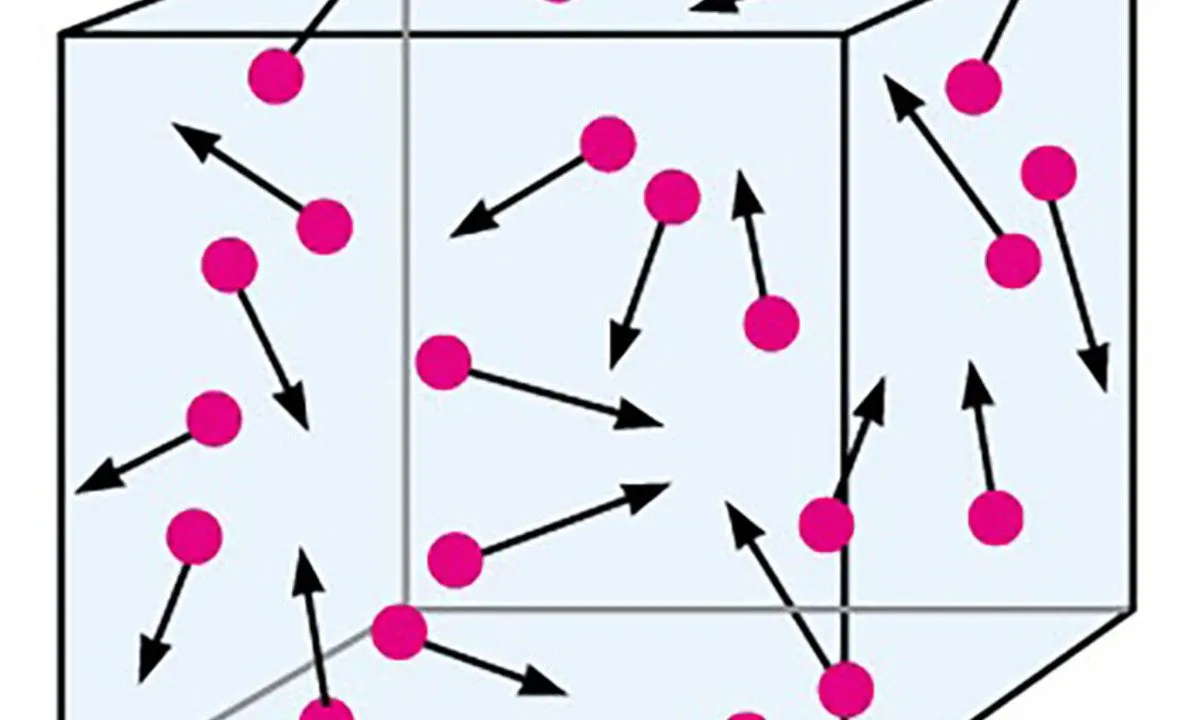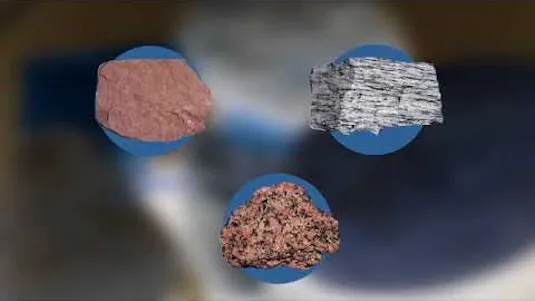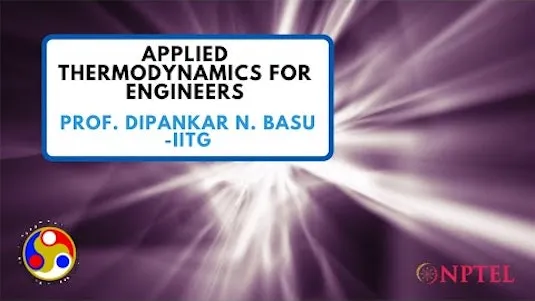
Ideal Gases 
This course explores the behavior of systems when intermolecular forces are not important, such as ideal gases. Topics include pure ideal gases, non-reacting and reacting ideal gas mixtures, computational methods for calculating equilibrium properties, and practical sources of ideal gas properties. Additionally, photons and electrons in metals are discussed as though they are ideal gases. ▼
ADVERTISEMENT
Course Feature
![]() Cost:
Cost:
Free
![]() Provider:
Provider:
Coursera
![]() Certificate:
Certificate:
Paid Certification
![]() Language:
Language:
English
![]() Start Date:
Start Date:
10th Jul, 2023
Course Overview
❗The content presented here is sourced directly from Coursera platform. For comprehensive course details, including enrollment information, simply click on the 'Go to class' link on our website.
Updated in [March 06th, 2023]
This course, Ideal Gases, is the third course in the Statistical Thermodynamics series. It focuses on the behavior of systems when intermolecular forces are not important. The course will cover the evaluation of partition functions for translational, rotational, vibrational and/or electronic motion, as well as the properties of pure ideal gases, including monatomic, diatomic and polyatomic species. It will also cover non-reacting and reacting ideal gas mixtures, and their many industrial applications. Computational methods for calculating equilibrium properties will be introduced, as well as practical sources of ideal gas properties. Lastly, the course will discuss photons and electrons in metals, which can be described as though they are ideal gases.
[Applications]
The application of this course can be seen in many areas. For example, the knowledge gained from this course can be used to calculate the thermodynamic properties of ideal gases, such as the internal energy, enthalpy, entropy, and free energy. This can be used to design and optimize industrial processes, such as combustion, refrigeration, and air conditioning. Additionally, the knowledge gained from this course can be used to analyze the behavior of photons and electrons in metals, which can be used to design and optimize electronic devices. Finally, the knowledge gained from this course can be used to analyze the behavior of non-reacting and reacting ideal gas mixtures, which can be used to design and optimize chemical processes.
[Career Paths]
1. Chemical Engineer: Chemical engineers use their knowledge of thermodynamics to design and develop processes for the production of chemicals, fuels, pharmaceuticals, and other products. They also work on improving existing processes and developing new ones. As the demand for new and improved products increases, the need for chemical engineers is expected to grow.
2. Process Engineer: Process engineers are responsible for the design, operation, and optimization of industrial processes. They use their knowledge of thermodynamics to develop efficient and cost-effective processes for the production of chemicals, fuels, and other products. Process engineers are also responsible for troubleshooting and resolving any issues that arise during the operation of a process.
3. Energy Engineer: Energy engineers use their knowledge of thermodynamics to develop efficient and cost-effective energy systems. They design and develop systems for the production of energy from renewable sources, such as solar, wind, and geothermal. They also work on improving existing energy systems and developing new ones. As the demand for renewable energy increases, the need for energy engineers is expected to grow.
4. Environmental Engineer: Environmental engineers use their knowledge of thermodynamics to develop solutions to environmental problems. They design and develop systems for the treatment of air, water, and soil pollution. They also work on improving existing systems and developing new ones. As the demand for environmental protection increases, the need for environmental engineers is expected to grow.
[Education Paths]
1. Bachelor of Science in Chemistry: A Bachelor of Science in Chemistry is a great degree path for those interested in learning more about ideal gases. This degree will provide students with a comprehensive understanding of the fundamentals of chemistry, including thermodynamics, kinetics, and chemical equilibrium. Additionally, students will gain an understanding of the properties of ideal gases and how they can be used in various applications. As the demand for chemical engineers and chemists continues to grow, this degree path is becoming increasingly popular.
2. Master of Science in Chemical Engineering: A Master of Science in Chemical Engineering is a great degree path for those interested in learning more about ideal gases. This degree will provide students with a comprehensive understanding of the fundamentals of chemical engineering, including thermodynamics, kinetics, and chemical equilibrium. Additionally, students will gain an understanding of the properties of ideal gases and how they can be used in various applications. As the demand for chemical engineers and chemists continues to grow, this degree path is becoming increasingly popular.
3. Doctor of Philosophy in Physics: A Doctor of Philosophy in Physics is a great degree path for those interested in learning more about ideal gases. This degree will provide students with a comprehensive understanding of the fundamentals of physics, including thermodynamics, kinetics, and chemical equilibrium. Additionally, students will gain an understanding of the properties of ideal gases and how they can be used in various applications. As the demand for physicists continues to grow, this degree path is becoming increasingly popular.
4. Master of Science in Applied Physics: A Master of Science in Applied Physics is a great degree path for those interested in learning more about ideal gases. This degree will provide students with a comprehensive understanding of the fundamentals of applied physics, including thermodynamics, kinetics, and chemical equilibrium. Additionally, students will gain an understanding of the properties of ideal gases and how they can be used in various applications. As the demand for applied physicists continues to grow, this degree path is becoming increasingly popular.
Pros & Cons

Applied thermo and statistics.

Exposure to various tools for chemical analysis.

Strengthens thermo basics.

Simple and deep explanations.

Quizzes unrelated to material.

Unwanted numericals.

Random exercises.

Not enough elaboration.

Quizzes/discussion prompts arrive earlier.
Course Provider

Provider Coursera's Stats at AZClass
Discussion and Reviews
0.0 (Based on 0 reviews)
Explore Similar Online Courses

Spanish I

Design Online Course Printables using Canva

Python for Informatics: Exploring Information

Social Network Analysis

Introduction to Systematic Review and Meta-Analysis

The Analytics Edge

DCO042 - Python For Informatics

Causal Diagrams: Draw Your Assumptions Before Your Conclusions

Whole genome sequencing of bacterial genomes - tools and applications

Viscous Fluid Flow

Metamorphic Petrology & Thermodynamics

Applied Thermodynamics For Engineers
 Related Categories
Related Categories
 Popular Providers
Popular Providers
Quiz
 Submitted Sucessfully
Submitted Sucessfully
1. What is the main focus of the course?
2. Which of the following is not discussed in the course?
3. Which of the following is a type of ideal gas discussed in the course?
4. What is the partition function used to evaluate in Ideal Gases?
Correct Answer: Translational, rotational, vibrational and/or electronic motion.


Start your review of Ideal Gases